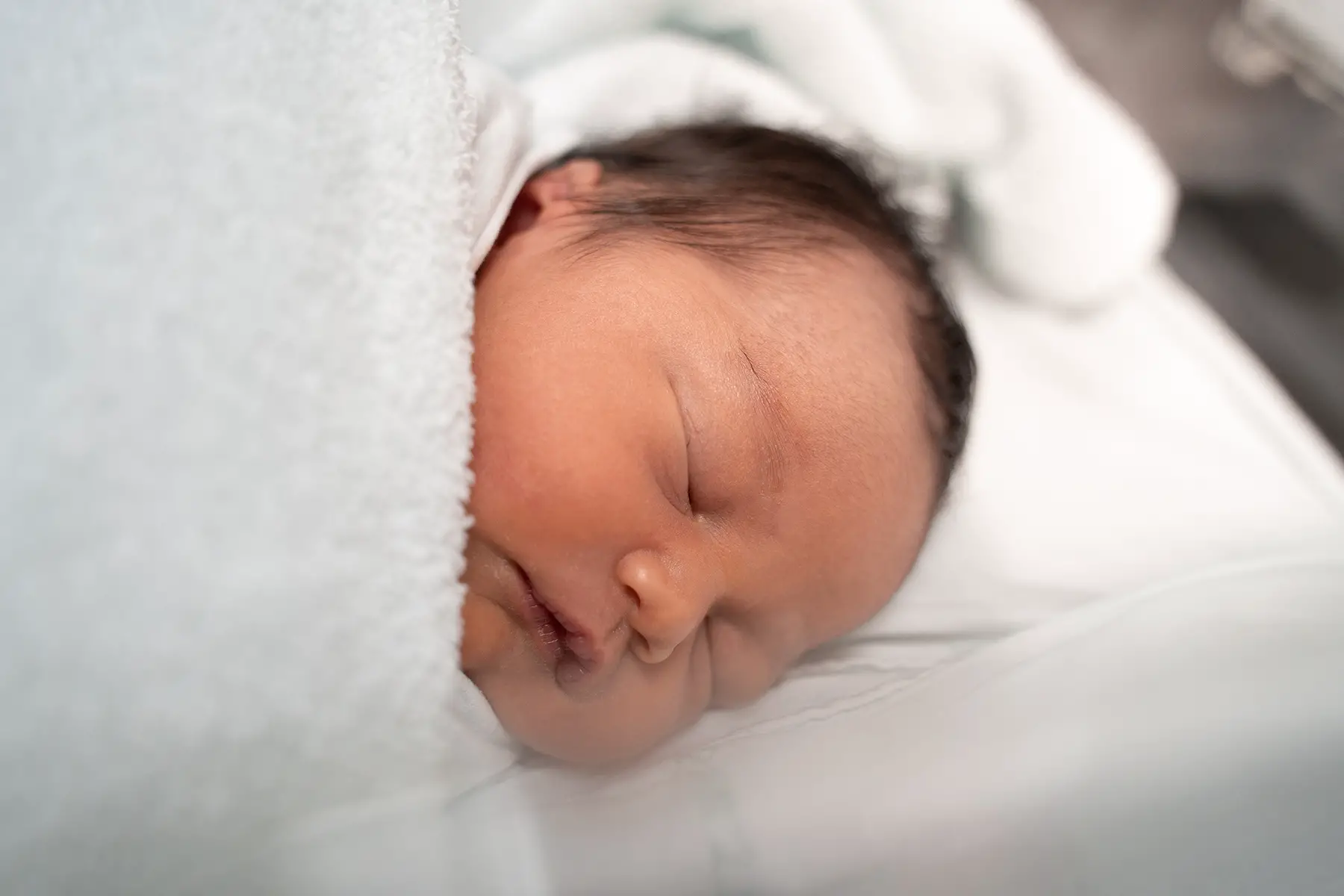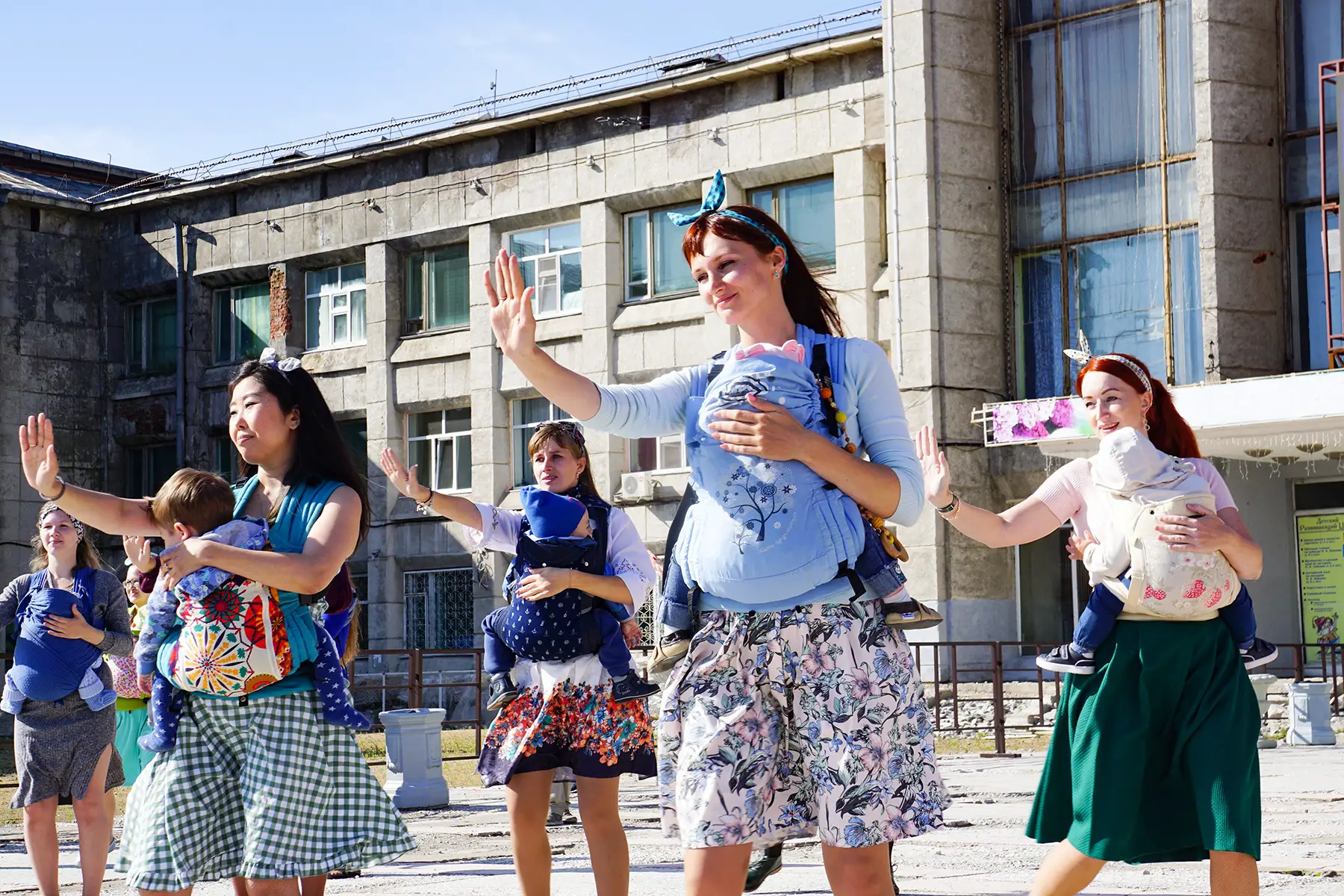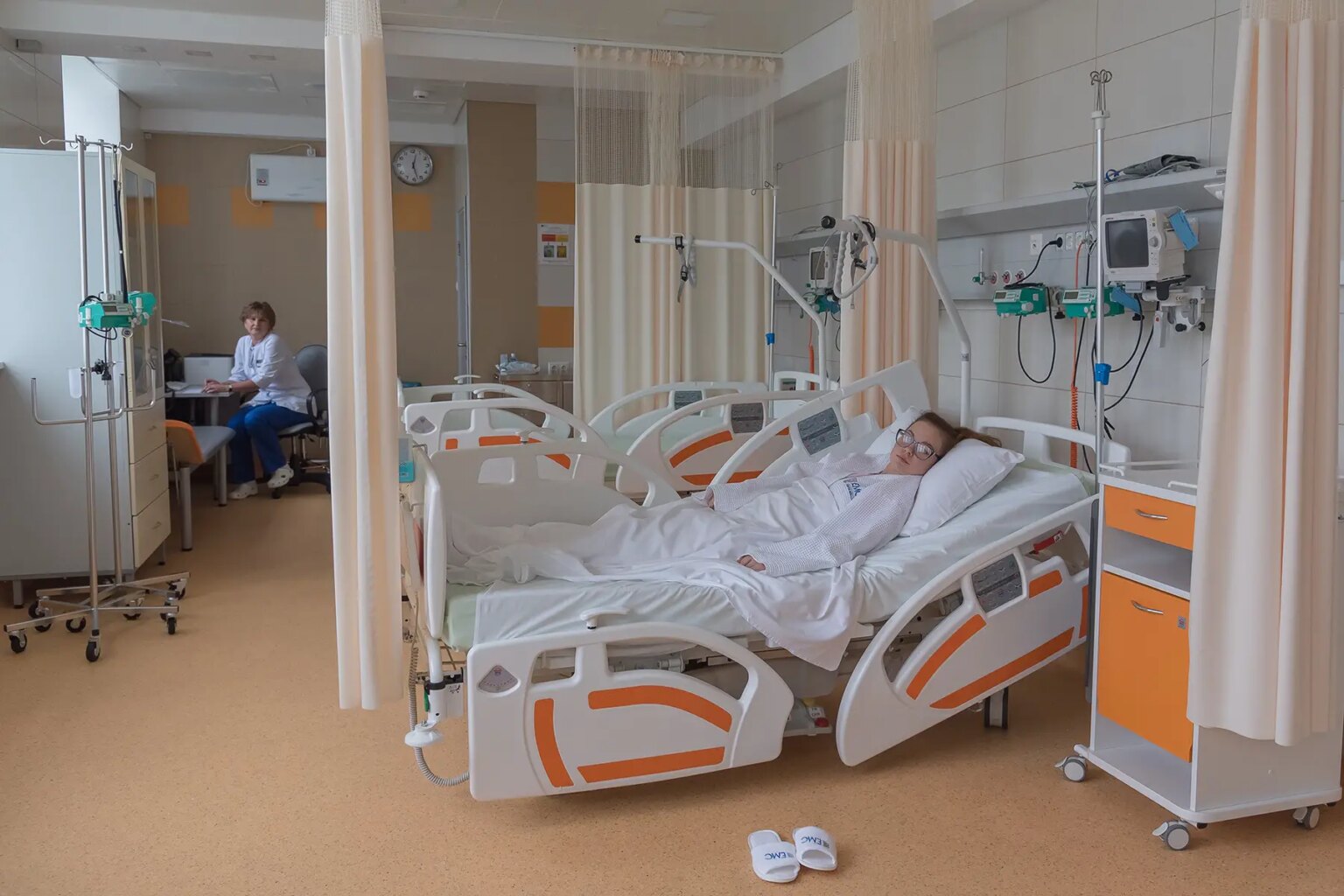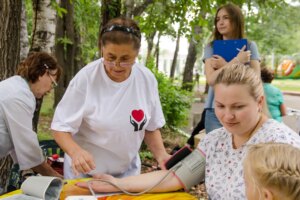Important notice from the Editor in Chief
Maintaining our Russian site is a delicate matter during the war. We have chosen to keep its content online to help our readers, but we cannot ensure that it is accurate and up to date. Our team endeavors to strike the right balance between giving information to those who need it, and respecting the gravity of the situation.
Maternity care in Russia is a little different to what you are familiar with. However, Russian healthcare provides high-standard options for childbirth that should help make your pregnancy in Russia a stress-free experience. This guide tells you all you need to know if you’re about to have a baby in Russia.
- Pregnancy and childbirth in Russia
- Accessing maternity services in Russia
- Insurance for maternity costs in Russia
- Pregnancy testing in Russia
- Prenatal care in Russia
- Giving birth in Russia
- Postnatal care in Russia
- Registering a birth in Russia
- Parental leave in Russia
- Child benefits in Russia
- Useful resources
Pregnancy and childbirth in Russia
When it comes to childbirth in Russia, expectant parents have a choice between giving birth in one of the municipal maternity hospitals or in a private hospital. If cost is a deciding factor, state-run hospitals and clinics are free to any foreign national with a permanent registration in Russia and the Obligatory Medical Insurance fund (OMI). But expats tend to opt for private maternity healthcare (through their voluntary health insurance, also known as VHI), as state facilities are not always up to par with western medical standards or don’t often have English-speaking staff on call.
Doctors or midwives generally oversee births in Russia. Hospital births are the most common birthing option in Russia compared to home births, water births and other alternatives.
Private hospitals and international medical centers can be costly. They typically offer improved maternity facilities, higher quality of care and more frequent services, including additional examinations during pregnancy. You can typically access private facilities if you have a private health insurance policy but check that your desired hospital or clinic is in your insurance company’s list of approved health facilities before your first check-up.
The fertility rate of the country has increased over the last 20 years. In 1999, the rate was 1.16 births per woman. In 2017, Russia’s fertility rate was 1.8.
Read more about healthcare in Russia and see a list of hospitals in Moscow.
Accessing maternity services in Russia
If you are having a baby in Russia, be aware that the administration and care you will receive at all maternity hospitals is primarily in Russian. You may find that an appointed gynecologist speaks a degree of English. International medical centers, however, typically have staff members who speak English if needed. Not all hospitals have maternity wards.

Expatica’s guide to healthcare in Russia offers a detailed overview of the system.
Insurance for maternity costs in Russia
Russia has a good public health insurance system that covers most costs associated with childbirth. However, the network of care is very uneven and many expats opt for voluntary health insurance to ensure the highest quality of maternity care and to cover additional needs and treatments. Private health insurance is also necessary for those without a state-funded plan.
Pregnancy testing in Russia
If you think you may be pregnant, you can go to any pharmacy to get a pregnancy test (“test na beremennost“); to confirm that you’re about to have a baby in Russia, you can also visit any hospital with maternity facilities.
Prenatal care in Russia
Antenatal appointments
After you confirm the pregnancy, you should plan a prenatal visit with a Russian doctor as soon as possible. You will then attend the maternity hospital of your choice at regular stages during the pregnancy for routine tests, so choosing one close to your residence or workplace is advisable. Many public hospitals in the heart of Moscow tend to be overcrowded. In some cases, it is advisable to choose a reputable hospital a little outside of the city center.
You can reach out to your network and other fellow expats when selecting a doctor or midwife to help you throughout your pregnancy and delivery. You will need to make your own arrangements if you have specific requirements or need a medical professional or midwife who can communicate in your preferred language.
During the early stages of your pregnancy, you will be given a certificate by your doctor. You should carry this with you throughout the nine-month cycle. It contains all of the information regarding the tests. Your doctor is also the person to contact right away if you have other issues or complications during your pregnancy.
You should discuss the maternity process with your doctor to understand what to expect during pregnancy until after giving birth; this can help identify if there are any differences to what you would experience at home. Good to know: during the first six months, you will see your doctor every 4–6 weeks – and even more often during the last three months of your pregnancy.
You can also benefit from doula support during your pregnancy. You can also reach out to the Russian Society of Obstetricians and Gynaecologists.
Scans, tests, and checks
During all visits, your health, blood pressure, weight, urine, and your baby’s heart rate and growth will be checked.

You can expect more detailed check-ups for your very first visit. Your height, weight, and blood pressure will be checked, and you will have to give a sample of your blood and urine. Your doctor will perform a physical and pelvic exam, and will ask about you, your partner and your family’s health history. You will also find out your (estimated) due date.
Click here to know more about vaccinations in Russia.
Antenatal classes
Pregnancy can be a stressful experience for parents-to-be. But luckily, you can take antenatal classes to know more about (among others) childbirth in Russia, baby care or breastfeeding. If you don’t speak Russian, private clinics such as the EMC Maternity Hospital in Moscow provide classes in English.
Giving birth in Russia
You should head to your chosen maternity hospital once signs of labor begin. Once you arrive, you will be taken to a maternity ward and cared for by the medical staff. It is advisable to have a birth plan written in advance and given to the hospital, so they are familiar with and can try to accommodate your requirements, including whether you want an epidural. This generally comes with an extra cost and you should specify if you wish the father to be present at the birth, which does not always happen in Russia, as fathers sometimes have to wait a few days before seeing their partner and newborn. Recently, there has been an increase of family wards in Russia where fathers can stay with their wives and babies.
The medical staff will be on hand throughout the period of labor, but your gynecologist will only be present as the birth approaches.
After childbirth, it is typical for mother and baby to stay in the maternity ward for at least three days. It should be no more than one week before you are released home. Some hospitals will allow you to leave before three days have passed, but you may be asked to sign a disclaimer to do so.
Postnatal care in Russia
After giving birth in Russia, mothers usually receive in-depth care from medical staff, with nurses sometimes even taking extra time to provide assistance. If you opt for private maternity healthcare, check whether your private health insurance includes postnatal care at a private hospital and book in advance if it does.

Vaccinations
Babies will be immunized against several diseases with the service being provided either by the public health care system (free) or through private hospitals (at a cost). It is recommended to plan the baby’s first vaccinations before the due date, as they are usually given when the baby is just born.
Russia doesn’t have a set vaccination schedule for children but you can enquire about which vaccines are available and when they should be administered.
Nurseries and childcare
You will be able to find a range of childcare services in Russia, including kindergartens, nannies and babysitters, child allowance and child support. You can find more information about it in our Childcare in Russia guide.
Breastfeeding
Breastfeeding is common in Russia. You can find groups like La Leche League (in Russian) to get tips and support.
Registering a birth in Russia
One of the first things you should do after the birth, is acquire your baby’s birth certificate from the civil registry office. You can call the ZAGS office before visiting to check their opening hours and what paperwork required for registration. At least one parent must go in person and, advisably, accompanied by a Russian speaker.
You would typically need to bring the following documents on your visit:
- Baby’s hospital birth certificate
- A translated and notarized copy of your marriage certificate
- Translated and notarized copies of your passport(s)
- A copy of your Russian visa registration forms
- Registration fee in cash
After obtaining a birth certificate, you can then register your baby at your embassy. Doing so will ensure that your child receives a passport for the country where you are a national, or other countries if applicable, as well as Russian citizenship.
You should contact your embassy or consulate before giving birth in Russia, to determine what the process entails. You will normally need to bring the following documents:
- Birth certificate obtained from the ZAGS office
- Hospital records
- Birth certificates of both parents
- Completed birth registration form
- Parents’ passports and other identification
Non-residents, visitors, and tourists giving birth in Russia
If you are on a trip and about to give birth in Russia, it is advisable to opt for private maternity facilities, where you will be able to find English-speaking staff. Note that the costs may vary from one hospital to another; check what your health insurance covers beforehand.
Will your child get Russian citizenship?
If both (or one of the) parents are foreigners but live in Russia, if the child was born in Russia and if the parent’s home country didn’t grant citizenship to the newborn, the child can obtain Russian citizenship.
Be aware though, that your child will not get Russian citizenship automatically. To do that, you will need to reach out to the Russian General Directorate of Migratory Affairs (GUVM). You can also check our guide for more information on Russian citizenship.
Parental leave in Russia
Working mothers are entitled to 140 days of maternity leave in Russia. Maternity leave begins 70 days before the pregnancy due date and continues for an additional 70 days after the completion of the first half of the entitlement, should the birth occur earlier than expected (or 84 days for multiple births). During the 140-day period, women receive 100% of their wages. Additional days can be added to your maternity leave in the event of multiple births (194 days in total) or if you run into some complications. Women are also protected from dismissal during their maternity leave in Russia.

Fathers, however, sacrifice their entire salary during the time they are absent from work as there are no laws guaranteeing paternity leave in Russia.
The Social Insurance Fund or Fond Socialnovo Strahovanya Rosiyskoy Federaciy handles maternity leaves and benefits.
Child benefits in Russia
Maternity and child benefits in Russia are covered by the state’s Social Insurance Fund. The exact amount you will receive may vary, depending on where you live. You can ask your regional office for an estimate of how much you will be reimbursed. In January 2019, the maximum monthly allowance for childcare was increased from 24,000 to 26,000 rubles.
Child and maternity benefits in Russia include:
- parental leave;
- maternity capital (if you give birth to more than one child);
- an early stages benefit (if you register your pregnancy within the first 12 weeks);
- a one-time benefit for children born (or adopted) in the same family;
- benefits for children of a serving soldier;
- monthly childcare benefits (fixed amount if you take parental leave, extra amount added to your salary if you return to employment);
- monthly benefits for low-earning parents.
Useful resources
- Center of Family Planning and Reproduction
- Center of Traditional Midwifery and Family Medicine
- La Leche League – for support when breastfeeding


